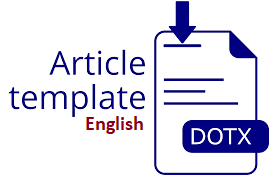Analisis Sentimen Publik terhadap ‘Save Raja Ampat’ di Media Sosial Menggunakan Model IndoBERT
DOI:
https://doi.org/10.47065/bulletincsr.v5i5.621Keywords:
TikTok; IndoBERT; Save Raja Ampat; Sentiment Analysis; Social MediaAbstract
The "Save Raja Ampat" campaign has emerged as a significant environmental issue that has garnered widespread public attention on social media platforms, particularly TikTok and YouTube. Videos tagged with #SaveRajaAmpat have sparked various public responses, ranging from full support to criticism of natural resource exploitation. This phenomenon highlights the importance of understanding public sentiment as an indicator of the campaign's effectiveness. This study aims to analyze public sentiment toward the campaign using a language modeling approach based on artificial intelligence, namely IndoBERT. The data were obtained from user comments on TikTok videos promoting the “Save Raja Ampat” campaign, totaling 10,000 comments. The analysis process involved several stages, including data preprocessing, sentiment labeling (positive, negative, neutral), and the training and evaluation of the IndoBERT model. Preliminary results indicate that the majority of public sentiment toward the campaign is positive, with the model achieving an accuracy rate of 71% in sentiment classification. This study contributes to understanding public perception of environmental issues and demonstrates the effectiveness of using the IndoBERT model in the context of social media.
Downloads
References
M. H. , M. R. A. V. S. , A. F. , A. W. , A. & R. F. Arifin, “Analisis Sentimen Masyarakat Terhadap Larangan Pengecer Menjual LPG 3 KG Bersubsidi Menggunakan Algoritma Naïve Bayes.,” vol. 9(4), no. 5778–5780., 2025.
A. Awalina, F. A. Bachtiar, dan F. Utaminingrum, “Perbandingan Pretrained Model Transformer pada Deteksi Ulasan Palsu,” Jurnal Teknologi Informasi dan Ilmu Komputer, vol. 9, no. 3, hlm. 597–604, 2022, doi: 10.25126/jtiik.2022935696.
H. Jayadianti, W. Kaswidjanti, A. T. Utomo, S. Saifullah, F. A. Dwiyanto, dan R. Drezewski, “Sentiment analysis of Indonesian reviews using fine-tuning IndoBERT and R-CNN,” ILKOM Jurnal Ilmiah, vol. 14, no. 3, hlm. 348–354, Des 2022, doi: 10.33096/ilkom.v14i3.1505.348-354.
D. Nuryadi dkk., “FINE TUNING INDOBERT UNTUK ANALISIS SENTIMEN PADA ULASAN PENGGUNA APLIKASI TIKET.COM DI GOOGLE PLAY STORE,” 2025.
D. Atmajaya, A. Febrianti, dan H. Darwis, “Metode SVM dan Naive Bayes untuk Analisis Sentimen ChatGPT di Twitter,” The Indonesian Journal of Computer Science, vol. 12, no. 4, hlm. 2173–2181, 2023, doi: 10.33022/ijcs.v12i4.3341.
M. R. Manoppo dkk., “ANALISIS SENTIMEN PUBLIK DI MEDIA SOSIAL TERHADAP KENAIKAN PPN 12% DI INDONESIA MENGGUNAKAN INDOBERT,” Jurnal Kecerdasan Buatan dan Teknologi Informasi, vol. 4, no. 2, hlm. 152–163, Mei 2025, doi: 10.69916/jkbti.v4i2.322.
F. Y. A’la, “Optimasi Klasifikasi Sentimen Ulasan Game Berbahasa Indonesia: IndoBERT dan SMOTE untuk Menangani Ketidakseimbangan Kelas,” Edumatic: Jurnal Pendidikan Informatika, vol. 9, no. 1, hlm. 256–265, Apr 2025, doi: 10.29408/edumatic.v9i1.29666.
D. Sebagai dkk., “PENGGUNAAN MODEL BAHASA INDOBERT PADA METODE RANDOM FOREST UNTUK KLASIFIKASI SENTIMEN DENGAN DATASET TERBATAS TUGAS AKHIR.”
P. L. Parameswari dan Prihandoko, “PENGGUNAAN CONVOLUTIONAL NEURAL NETWORK UNTUK ANALISIS SENTIMEN OPINI LINGKUNGAN HIDUP KOTA DEPOK DI TWITTER,” Jurnal Ilmiah Teknologi dan Rekayasa, vol. 27, no. 1, hlm. 29–42, Apr 2022, doi: 10.35760/tr.2022.v27i1.4671.
R. Kinanda, E. Sudeska, S. Taher, dan A. Alfa, “ANALISIS SENTIMEN MEDIA ONLINE PEMBANGUNAN KABUPATEN INDRAGIRI HILIR: TINJAUAN MEDIA DIGITAL TERHADAP MISI PEMBANGUNAN,” 2024.
B. Liu, “Sentiment Analysis and Opinion Mining,” Morgan & Claypool Publishers, 2012.
M. Gultom, J. Marikros, dan W. Rusli, “SEMINAR NASIONAL CORISINDO Penerapan Vader Sentiment untuk Mendeteksi Sentimen Bahasa Inggris berbasis Website.”
A. E. Putra dan W. Maharani, “Depression Levels Detection Through Twitter Tweets Using RoBERTa Method,” Journal of Information System Research (JOSH), vol. 3, no. 4, hlm. 453–459, 2022, doi: 10.47065/josh.v3i4.1872.
N. Nurwanda, N. Suarna, dan W. Prihartono, “PENERAPAN NLP (NATURAL LANGUAGE PROCESSING) DALAM ANALISIS SENTIMEN PENGGUNA TELEGRAM DI PLAYSTORE,” JATI (Jurnal Mahasiswa Teknik Informatika), vol. 8, no. 2, hlm. 1841–1846, Apr 2024, doi: 10.36040/jati.v8i2.8469.
J. Devlin, M.-W. Chang, K. Lee, K. T. Google, dan A. I. Language, “BERT: Pre-training of Deep Bidirectional Transformers for Language Understanding.” [Daring]. Tersedia pada: https://github.com/tensorflow/tensor2tensor
P. Pookduang, R. Klangbunrueang, W. Chansanam, dan T. Lunrasri, “Advancing Sentiment Analysis: Evaluating RoBERTa against Traditional and Deep Learning Models,” Engineering, Technology and Applied Science Research, vol. 15, no. 1, hlm. 20167–20174, 2025, doi: 10.48084/etasr.9703.
A. Farhan dan A. Y. Rahman, “ANALISIS SENTIMEN ULASAN APLIKASI IDENTITAS KEPENDUDUKAN DIGITAL DI GOOGLE PLAY STORE DENGAN BERT,” 2025.
T. D. Purnomo, J. Sutopo, dan A. History, “COMPARISON OF PRE-TRAINED BERT-BASED TRANSFORMER MODELS FOR REGIONAL,” vol. 3, no. 3, hlm. 11–21, 2024.
C. Suhaeni, H. Wijayanto, dan A. Kurnia, “Sentiment Classification on the 2024 Indonesian Presidential Candidate Dataset Using Deep Learning Approaches,” Indonesian Journal of Statistics and Its Applications, vol. 8, no. 2, hlm. 83–94, Des 2024, doi: 10.29244/ijsa.v8i2p83-94.
I. R. Valiant dan E. M. Rosa, “Parenting stress during the Covid-19 pandemic era: A literature review,” Jurnal Kedokteran dan Kesehatan Indonesia, Mei 2022, doi: 10.20885/JKKI.Vol13.Iss1.art12.
Bila bermanfaat silahkan share artikel ini
Berikan Komentar Anda terhadap artikel Analisis Sentimen Publik terhadap ‘Save Raja Ampat’ di Media Sosial Menggunakan Model IndoBERT
ARTICLE HISTORY
How to Cite
Issue
Section
Copyright (c) 2025 Dimas Eko Putro, Doris Juarsa, BP Putra Hermana, Bagastian Bagastian, Heni Sulistiani

This work is licensed under a Creative Commons Attribution 4.0 International License.
Authors who publish with this journal agree to the following terms:
- Authors retain copyright and grant the journal right of first publication with the work simultaneously licensed under Creative Commons Attribution 4.0 International License that allows others to share the work with an acknowledgment of the work's authorship and initial publication in this journal.
- Authors are able to enter into separate, additional contractual arrangements for the non-exclusive distribution of the journal's published version of the work (e.g., post it to an institutional repository or publish it in a book), with an acknowledgment of its initial publication in this journal.
- Authors are permitted and encouraged to post their work online (e.g., in institutional repositories or on their website) prior to and during the submission process, as it can lead to productive exchanges, as well as earlier and greater citation of published work (Refer to The Effect of Open Access).














